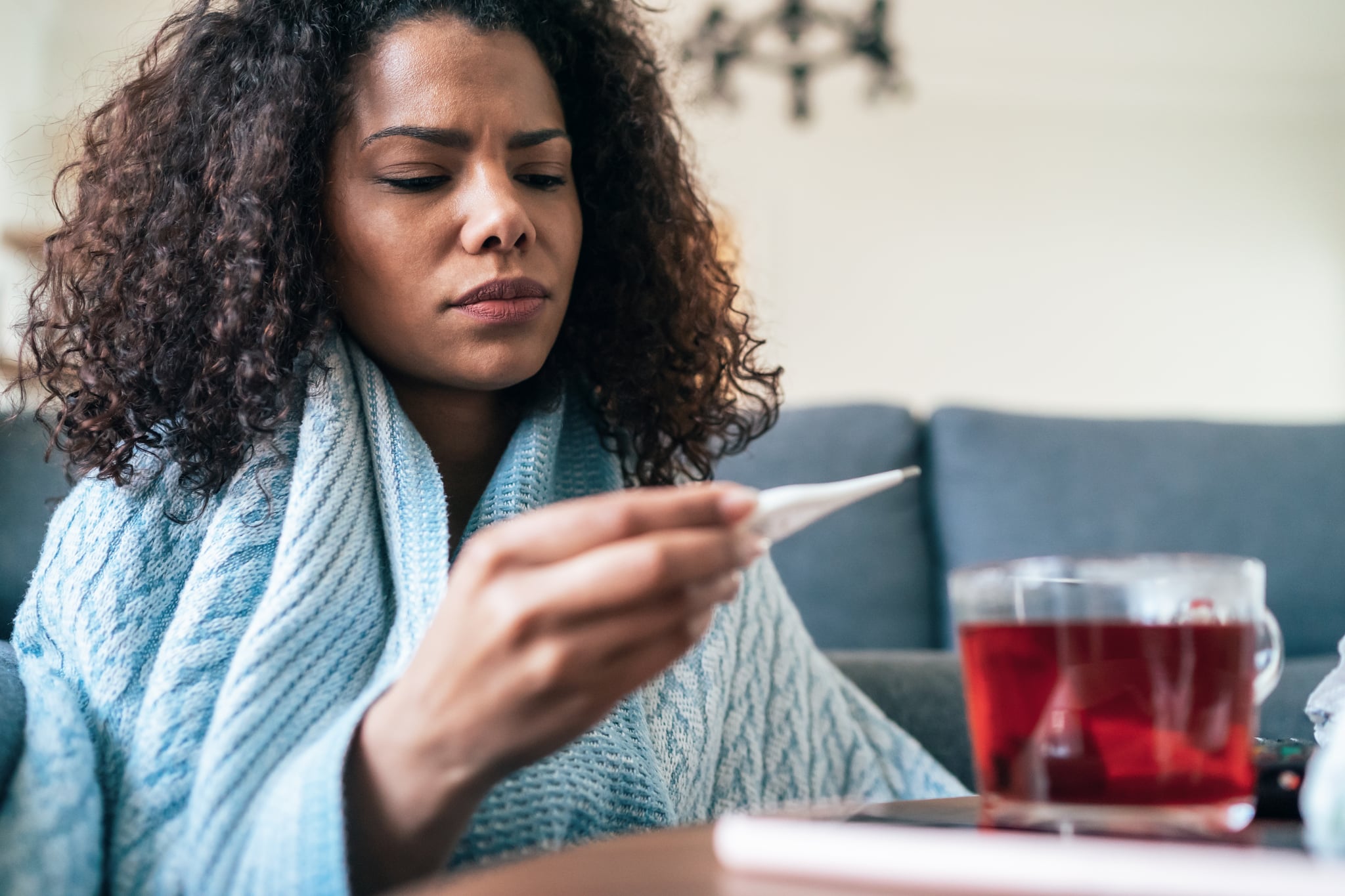
While typical PMS symptoms (like nausea, bloating, and mood swings) can be a real pain, others can be downright sickening — literally. Ever heard of period flu?
“Period flu is a lay term describing a subset of premenstrual symptoms which mimic flu-like symptoms,” says Mary Jacobson, MD, chief medical officer of Hello Alpha.
Symptoms of period flu can range from diarrhea and joint pain to a mild fever. And while it isn’t an official diagnosis, “a lot of women do experience flu-like symptoms around their periods,” says Mary Jane Minkin, MD, a clinical professor of obstetrics and gynecology and reproductive sciences at Yale School of Medicine.
The likeliest explanation for period flu? Hormones and prostaglandin. (More on that later!) Fortunately, both experts have tips on how to treat and manage period flu. Ahead, everything you need to know.
Symptoms of Period Flu
Period-flu symptoms tend to vary from person to person. Some people will experience these flu-like symptoms in the days leading up to their period, while others will experience them the duration of their period. According to Dr. Jacobson, symptoms may include:
- Fatigue
- Mild temperature elevation
- Headaches
- Joint or muscle pain
- Feeling bloated
- Diarrhea
- Nasal congestion
The Causes of Period Fever
Running a mild fever ahead of your period is not uncommon. The uterus produces a chemical called prostaglandin, and “prostaglandins do all sorts of things,” says Dr. Minkin — including contract smooth muscles (like of the uterus and the gut, which can cause those detestable cramps, diarrhea, and/or nausea). “Prostaglandins also can raise your temperature and make you achy in general,” Dr. Minkin explains.
Hormonal fluctuations can also contribute to you getting a fever ahead of your period. “Increases in progesterone levels at the time of ovulation cause an increase in basal body temperature,” Dr. Jacobson says. And hormone fluctuations during your cycle can cause your basal body temperature to increase anywhere from 0.3 to 1.0 degrees Celsius, Shannon Clark, MD, FACOG, and double board-certified ob-gyn, told POPSUGAR.
So let’s say your body typically runs 98.6 degrees Fahrenheit, your temperature could go up to 100.4. This isn’t a huge spike, but it’s enough to give you the period flu, where you may feel clammy and hotter than usual.
How to Treat and Manage Period Flu
“Often, lifestyle changes to increase comfort and reduce stress during PMS can be very effective at managing severe symptoms,” says Dr. Jacobson — including period flu. She suggests:
- Light exercise and movement.
- Meditation or breathing exercise.
- Getting 7–8 hours of sleep each night.
- Avoiding junk-food cravings (large amounts of sugar, fat, and salt can trigger drastic mood swings).
- Taking over-the-counter pain medication, even before symptoms begin, particularly ibuprofen and naproxen, which block the making of more prostaglandins, Dr. Minkin adds.
When symptoms are too severe and these at-home changes aren’t effective, Dr. Jacobson suggests consulting with your doctor for further evaluation and treatment recommendations.
They may recommend other FDA-approved medications used to manage some PMS symptoms and PMDD symptoms, including combination birth control pills or selective serotonin reuptake inhibitors (SSRIs).
— Additional reporting by Emily Weaver
